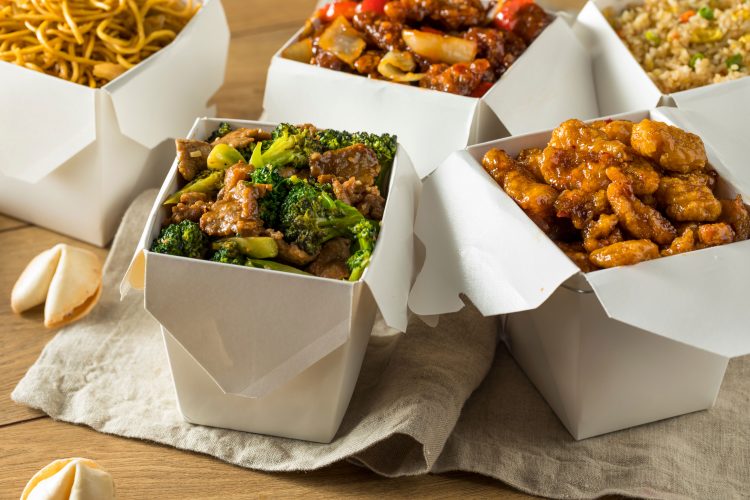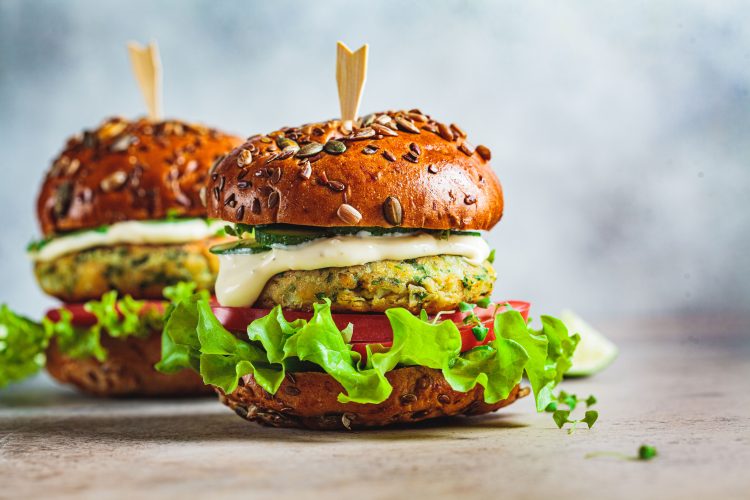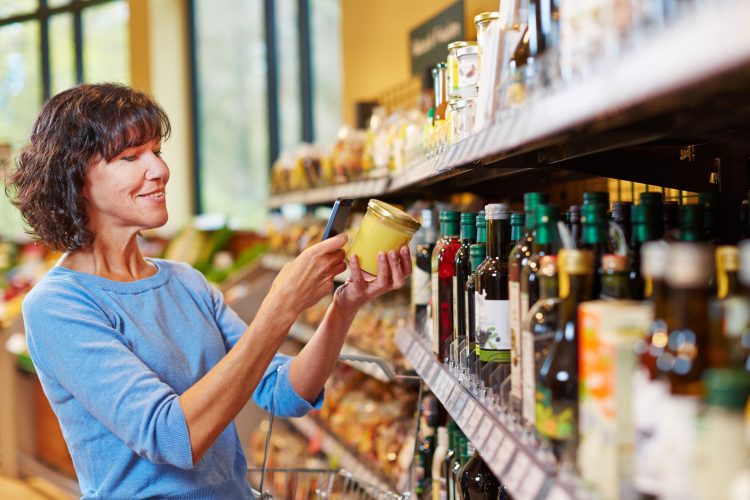What impact has 2020 had on progress in the food industry?
- Like
- Digg
- Del
- Tumblr
- VKontakte
- Buffer
- Love This
- Odnoklassniki
- Meneame
- Blogger
- Amazon
- Yahoo Mail
- Gmail
- AOL
- Newsvine
- HackerNews
- Evernote
- MySpace
- Mail.ru
- Viadeo
- Line
- Comments
- Yummly
- SMS
- Viber
- Telegram
- Subscribe
- Skype
- Facebook Messenger
- Kakao
- LiveJournal
- Yammer
- Edgar
- Fintel
- Mix
- Instapaper
- Copy Link
Posted: 11 December 2020 | Stuart Kelly | No comments yet
Stuart Kelly from Lloyd’s Register reviews his 2020 predictions and examines how the COVID-19 pandemic has affected progress in the food sector.


The increase in takeaway production has seen more plastic enter the food market
At the start of 2020, Lloyd’s Register’s Stuart Kelly told New Food the 10 key trends he anticipated would await the food industry. Here, Kelly puts his money where his mouth is, reviewing these trends and explaining how the COVID-19 pandemic hampered – or indeed accelerated – progress.
More success for plant-based food…
It’s safe to say that 2020 has seen major growth for the plant-based market. A number of high-profile announcements led to plant-based food production hitting the headlines, with Unilever the latest to commit to a target of €1 billion in annual sales.
There have been a number of drivers for this, including brands traditionally associated with meat products showing more commitment to offering alternatives. We have also seen a greater desire for the products from a more health-conscious consumer base, while the impact of COVID-19 on meat-processing facilities has perhaps embedded further doubts into the minds of consumers.


2020 has been a good year for plant-based
…but not without greater scrutiny
The rise of plant-based food has indeed brought greater scrutiny of both its nutritional value and the way products are processed. At the beginning of the year, research of US consumers by Lloyd’s Register found that roughly 25 percent of those surveyed were either ‘not very confident’ or ‘not confident at all’ that food labelled as vegan was in fact vegan.
However, the industry has responded well. BRCGS, for example, introduced a new plant-based food standard which will help alleviate concerns and grow consumer trust. Food manufacturers are advised to meet certification standards to not only ensure quality, but also address any future scepticism.
Clean meat’s arrival
Much was anticipated with the arrival of lab-grown meats, but the pandemic has disrupted the strategic focus of many of the sector’s largest manufacturers. One of the key resulting impacts of this has been a running theme of new product development being put on hold, with supply chain disruption and changing consumer demand among the main reasons.
This is starting to change, with signs that lab-grown meat is starting to move back into the spotlight. As a result, we can expect investment to increase. Watch this space.
Meaningful plastic reduction
While the issue of plastic pollution has not shied away from the headlines, the resulting impact of the pandemic has seen many organisational commitments placed on hold. The proliferation of PPE use – and increase in takeaway production – has seen more plastic enter the food market.
Similarly to how the plant-based market is dealing with added scrutiny, changes are being made to support plastic reduction. More standards have been introduced – including the Responsible Plastic Management Standard – allowing manufacturers and retailers to begin to reprioritise meaningful plastic reduction and make commitments that are attainable over the next decade.
Supply chain transparency
The events of 2020 have caused great strain on the global supply chain. Traditional assurances in supply chain compliance and transparency for retailers and multinational manufacturers have been heavily dependent on third-party certification, specifically GFSI benchmarked standards.
How the industry learns from the impact of the pandemic is going to be crucial within the supply chain. Greater importance could be placed on owned second-party standards, while the use of technology will help gain certainty. The disruption of 2020 will be a catalyst for setting a new benchmark for what ‘good’ looks like, as failure to change has never been a bigger risk.


Having the capability to trace a product’s journey or find out more about its ingredients has become a sought-after quality among consumers
Red meat and dairy fight back
With a lot of the talk centred on how the plant-based sector was set to surge, we expected to see the meat and dairy industry fight back, and we were right. In addition to the introduction of ‘Februdairy’, we saw high-profile court cases take place to protect the use of certain terms. In October, for example, the EU voted on a proposal to ban the use of descriptors, such as ‘burger’ and ‘sausage’, on meat alternatives. While these proposals were voted down, it shows the industry is indeed ready to fight back, and it’s likely this debate will grow in 2021.
Other steps we saw included a big shift towards buying local, especially during the height of the pandemic. McQueens Dairies is a prime example of reaping the benefits of this consumer trend, announcing job creation and facility expansion to meet demand. The opportunity to link quality red meat and dairy to buying local is strong, and one we fully expect to see the industry capitalise on further next year.
Challenging ethical-sustainable foods
At the start of 2020, we thought consumers would start to question whether certain ‘ethical-sustainable’ alternatives were actually better for the environment. As of yet, we have seen no evidence of this. In fact, production of plant-based products has increased, with its environmental impact at the forefront of a number of marketing campaigns.
Farmed fish under the spotlight
2020 has been extremely challenging for the seafood market. We expected to see salmon production fight for further market share, but the premium export has been one of the many products impacted on by COVID-19. This has been amplified by the struggles of the hospitality market, which often favours salmon within the events space.
While the main focus has been on adapting to the challenges posed by COVID-19, organisations – such as the Scottish Salmon Producers Organisation – have spent time creating a robust strategy on how the sector can run more sustainably. These steps should enhance the sector’s sustainability and animal credentials, and start the new year on a proactive note.
Climate footprint pressures
We started the year expecting climate change announcements to play a major role. Oatly, for example, had begun to include a ‘climate cost’ on its products, and we thought other brands would follow suit. However, this has not been as prevalent as we expected, with little development regarding the accountability of the supply chain and manufacturers.
Recent high-profile campaigns from the likes of Brewdog that highlight a commitment to being ‘carbon negative’ are a good indicator we could be seeing a lot more progress next year.
Health labelling
As expected, consumer focus on health and wellbeing continued to increase, driven perhaps by the pandemic. In a second report by Lloyd’s Register, this time focusing on the Chinese market, food nutrition was a priority for 73 percent of the 1,000 consumers surveyed.
There are also signs that further restrictions could come into play, with the UK discussing the possibility of a ban on online junk food advertising. The pandemic has put global health into the spotlight, and 2021 could see more hurdles in place for manufacturers of food with high sugar or fat levels.
About the author
Stuart Kelly is the Head of Commercial in the Customised Assurance team. He is a retail and hospitality assurance specialist with over 20 years of experience, developing and managing customised solutions for global businesses within the food sector.
During his career, he has worked with many businesses to develop tailor-made audit programmes which use audit and compliance data to reduce food safety, operational and brand reputation risk. He is passionate about helping businesses achieve transparency and real-time visibility of their supply chains.
Related topics
Cultured Meat, Health & Nutrition, Plant based, Sustainability, The consumer








